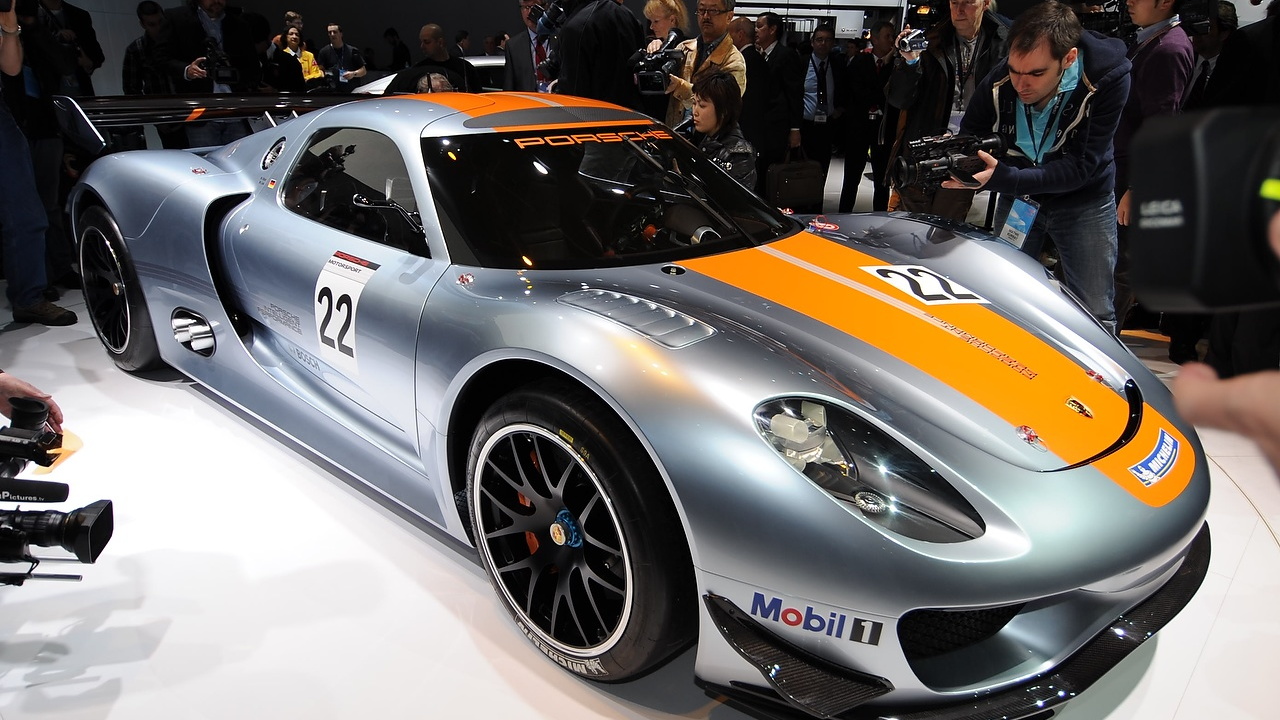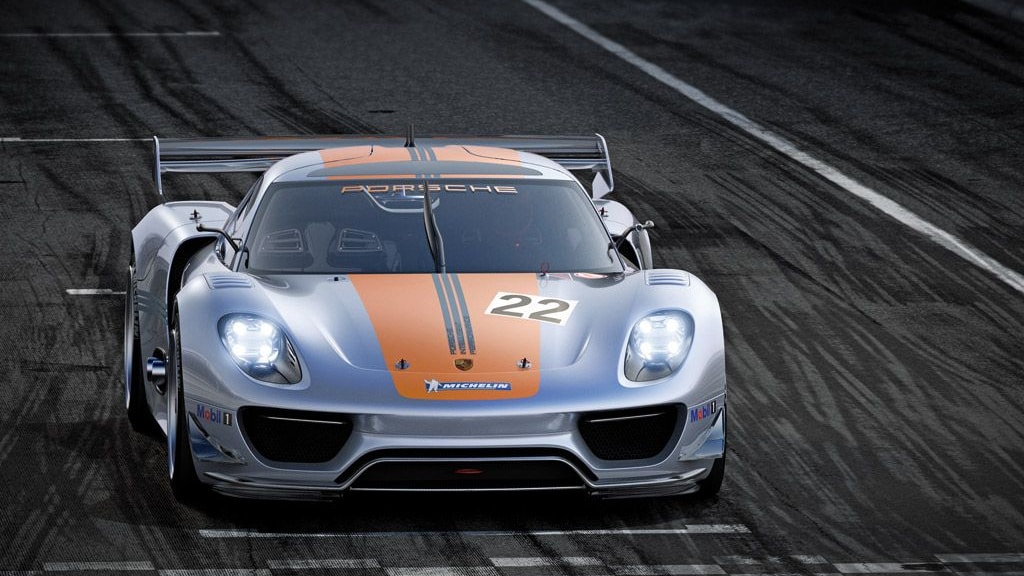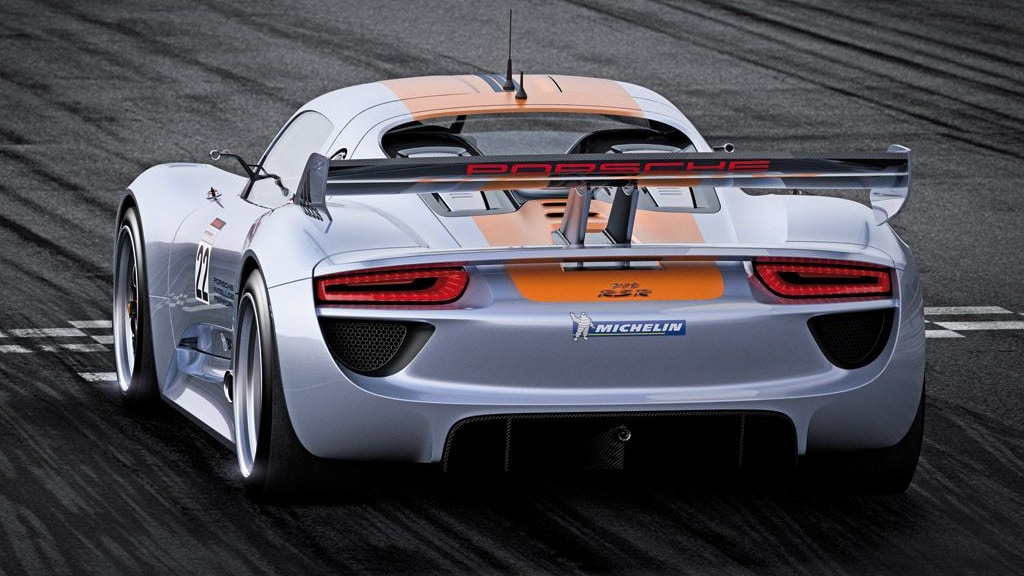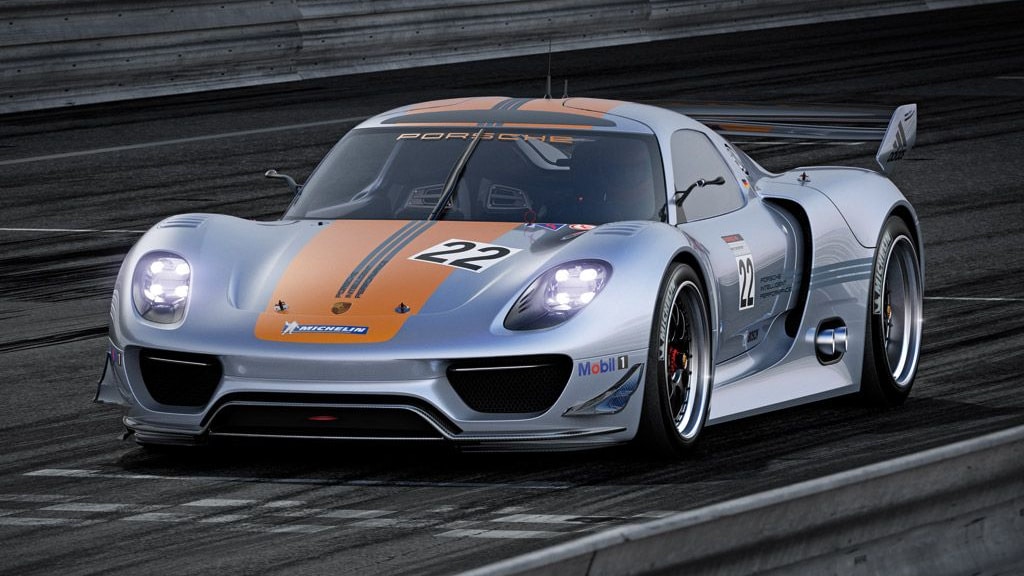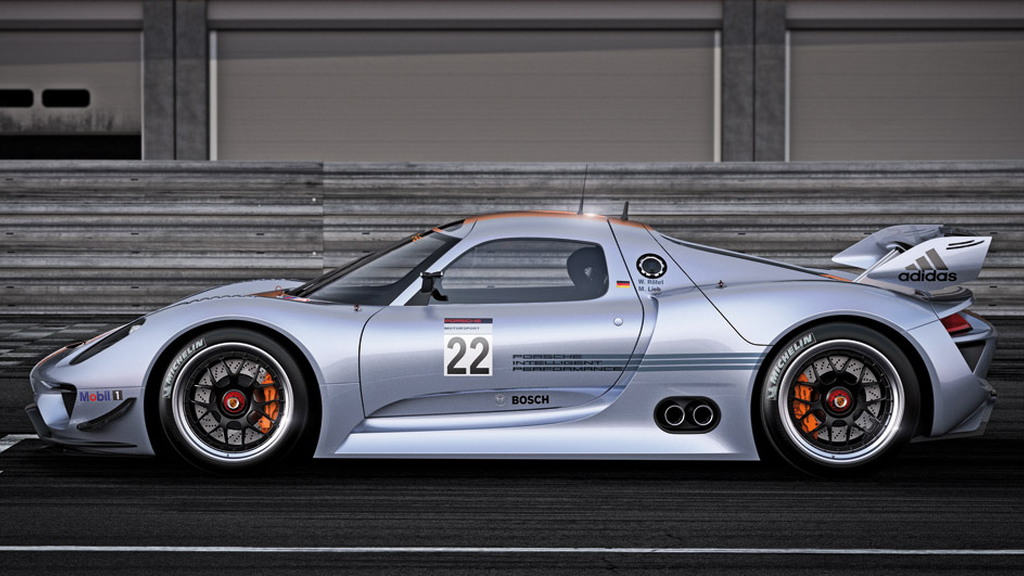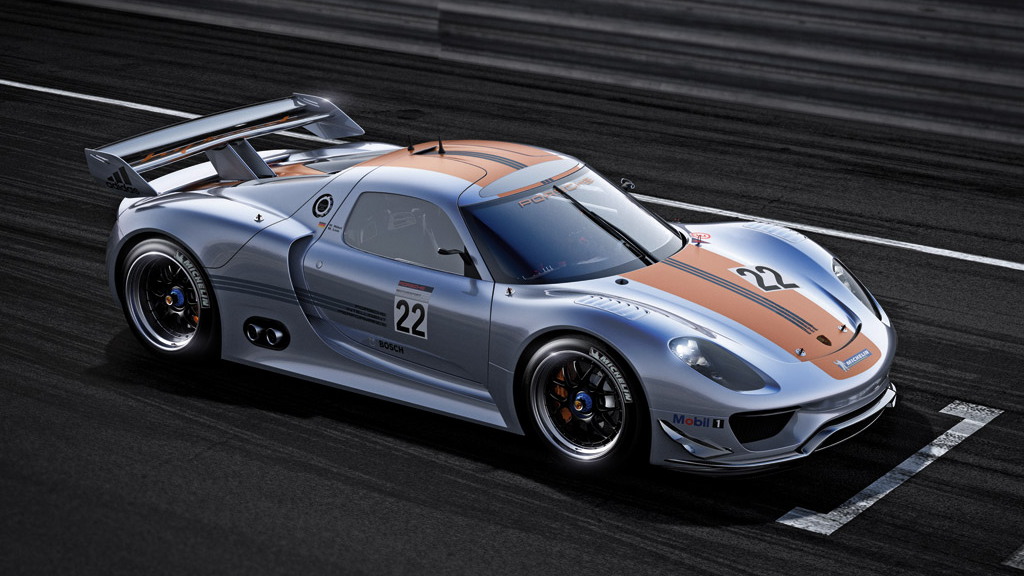Possibly the most rapturously received vehicle at last week's Detroit Auto Show was the Porsche 918 RSR coupe, a hybrid race car that isn't even street-legal.
And it's about as far from the quintessential Toyota Prius hybrid as you could get. It doesn't use a battery pack at all, in fact, but the flywheel-based Kinetic Energy Recovery System (KERS) that the company's engineers first installed in the one-off Porsche 911 GT3 R Hybrid factory racer.
After a heart-breaking retirement less than two hours before the end of the 24 Hours of Nurburgring this summer, that car (running in a class of one) finished October's Petit Le Mans race at Road Atlanta, its only competition appearance in North America.
With driver enthusiasm high for the hybrid 911, along with the announcement of the production launch of the 918 Spyder hybrid-electric supercar based on a concept shown early this year, Porsche is fast building on its strength in energy-saving technology.

Porsche 918 RSR
Hence, the launch of the 918 RSR coupe at the 2010 Detroit Auto Show.
While the 918 Spyder featured a plug-in hybrid system with a lithium-ion battery pack that provided up to 18 miles of electric-only running, the track-only 918 RSR coupe uses the flywheel KERS system first pioneered in Formula 1 racing.
It also features a mid-mounted V-8 engine producing 555 horsepower at speeds beyond 10,000 rpm. The engine drives the rear wheels through a six-speed transmission, and is paired to twin 100-horsepower electric motors that drive the fronts.
Whether the 918 RSR is the fastest hybrid in the world or the second fastest--it is, after all, competing with the 911 GT3 R Hybrid as well as, possibly, the 918 Spyder--will have to wait for track testing.
And that distinction may rest on which cars are fitted with which final-drive ratios for which tracks.
Nonetheless, traditional German contempt for hybrid drive systems has come to an end. At least it has in Zuffenhausen, the traditional home of Porsche's finest engineers.
